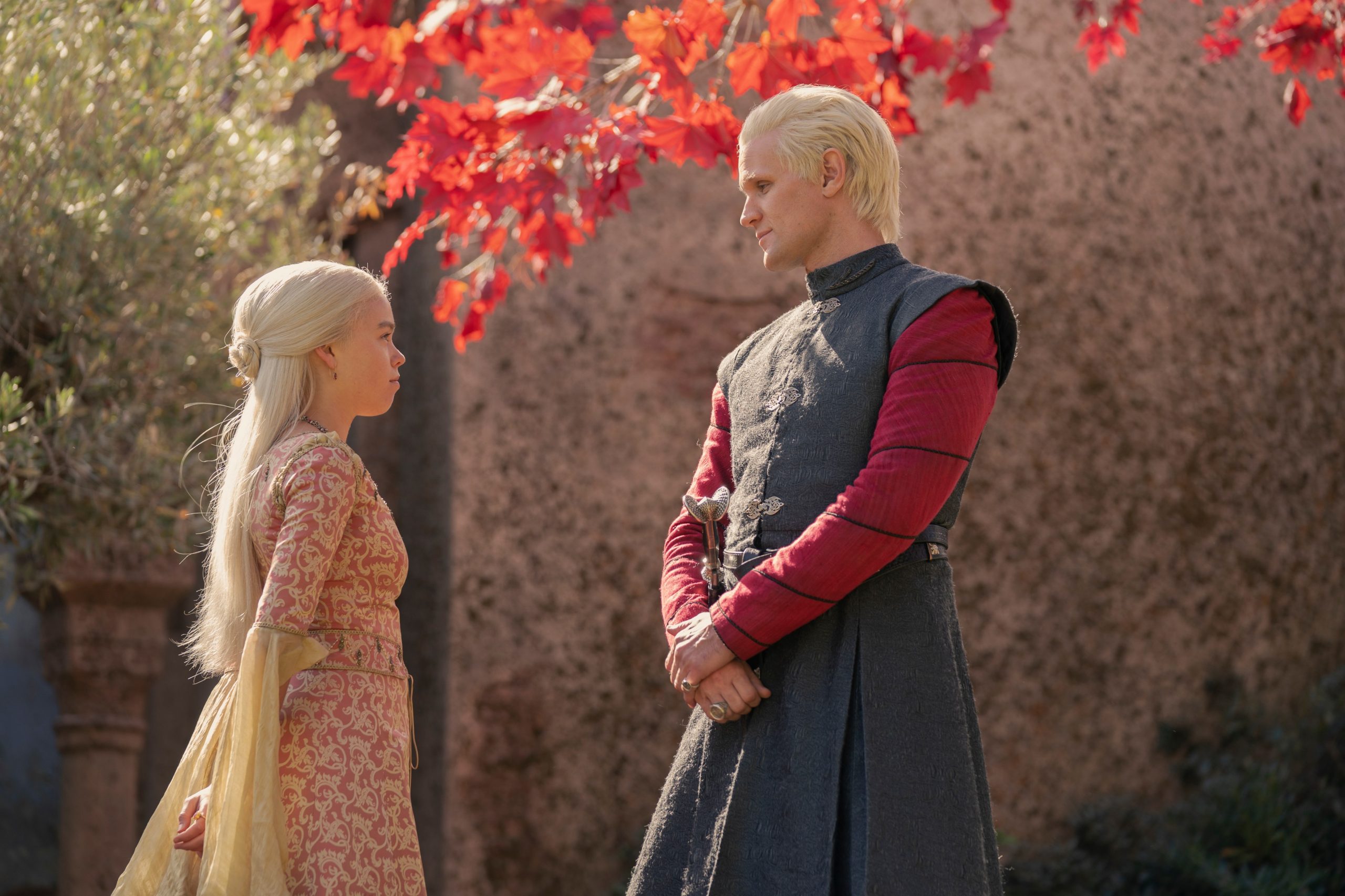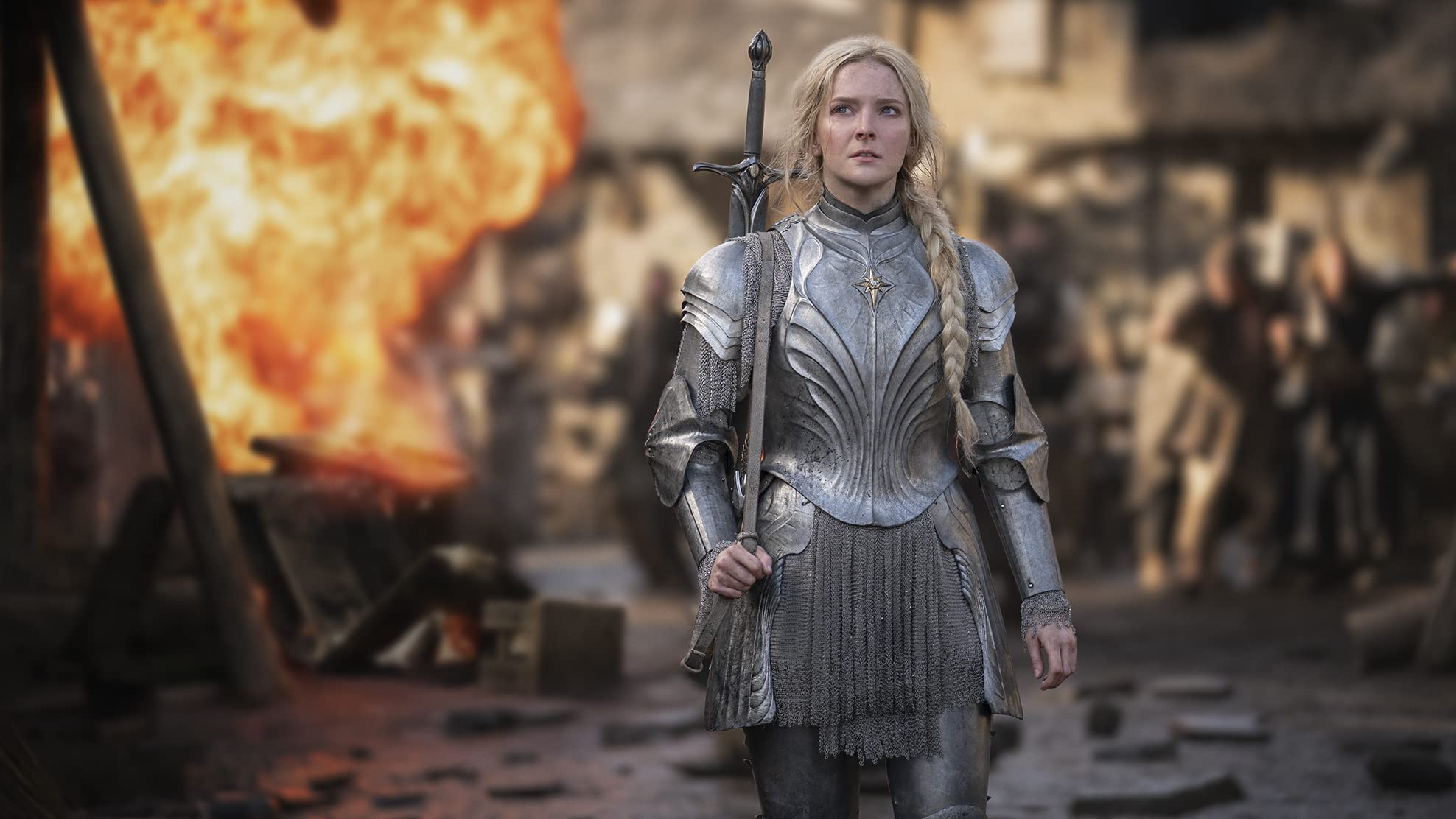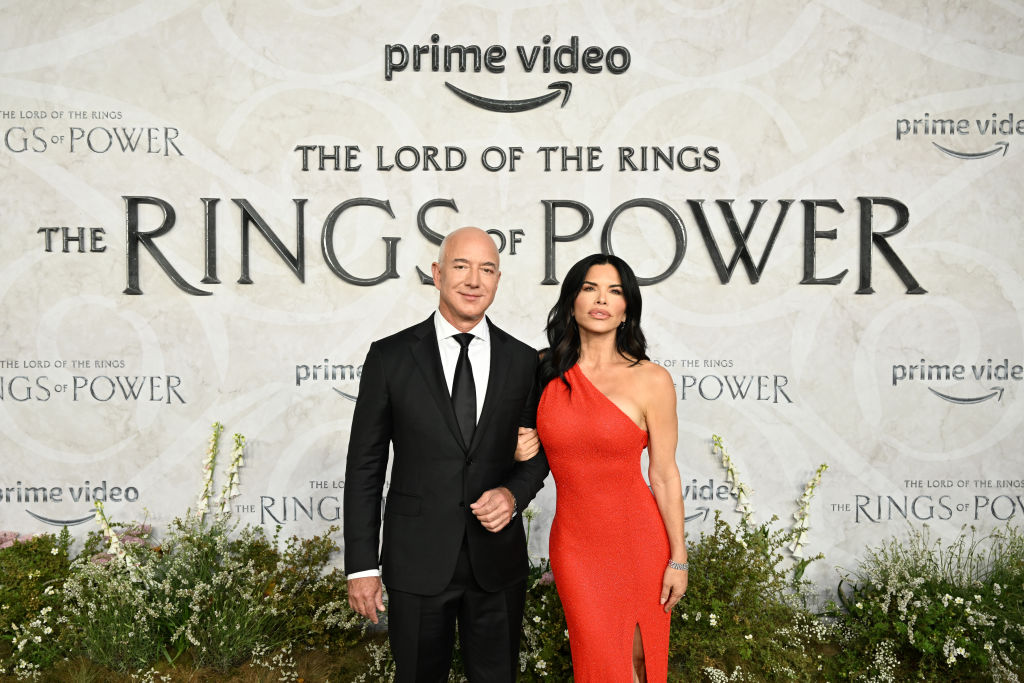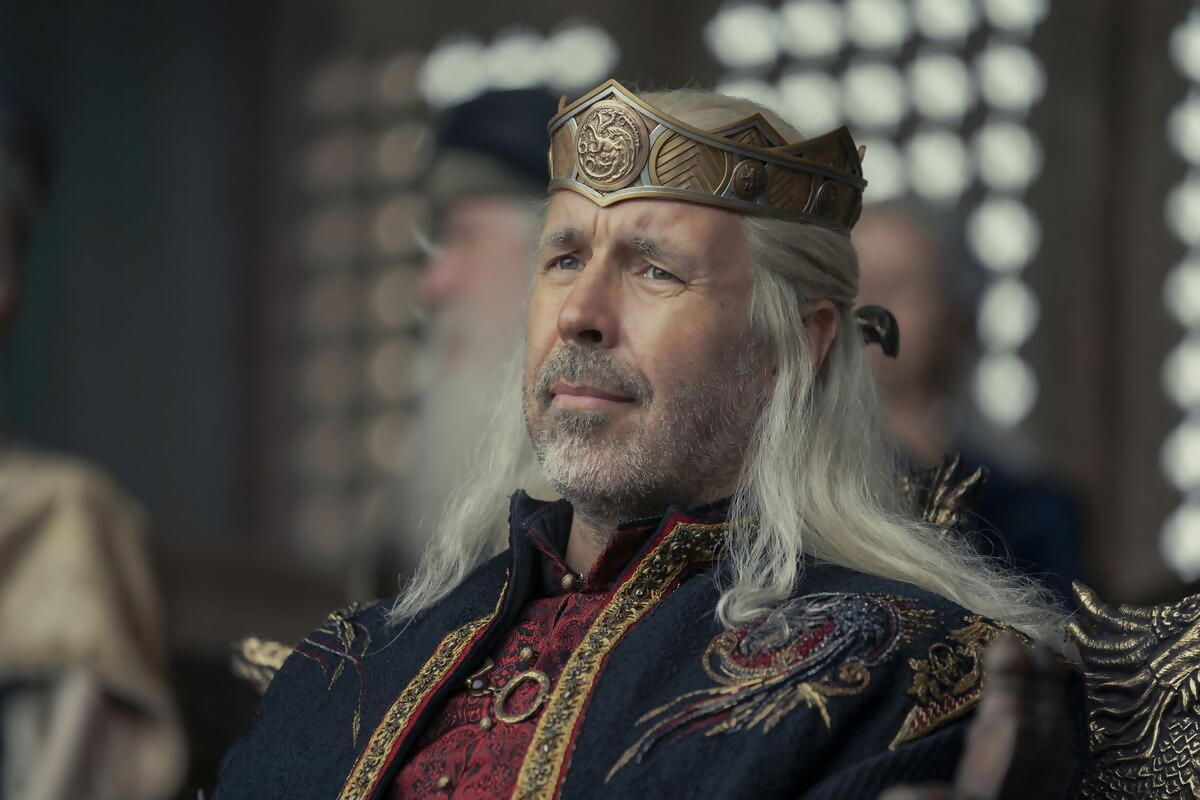
Rings of Power falls short for several embarrassing reasons, most notably disenchanted dialogue. House of Dragon doesn’t have that problem.
Living is choosing. Corrie or Eastenders? GTA or Saints Row? To be, or not to be? With HBO and Amazon bidding for your time with their fantasy serials and most viewers’ time being precious, some discrimination is likely needed.
Fortunately, this isn’t one of life’s difficult choices, like naming your child, moving house, or choosing from the menu at Mcdonald’s. There is an easy answer here. With both series at the halfway point, it’s clear The House of the Dragon is the show that deserves your time.
Why watch House of the Dragon instead of Rings of Power?
The House of the Dragon is solid from the get-go. It dumped the necessary exposition without much fuss before introducing us to the setting from a dragon’s eye view, from which we are set down on the ground to meet our cast of characters.
We become au fait with this world’s geopolitics by a seat at the King’s Council and get a sense of the principal players, motivations, and personalities. Before things get too dreary, a tourney is put on for our entertainment. Unlike the comparatively placid contests put on by Robert Baratheon in Game of Thrones, the Targaryen’s is a blood-curdling deathmatch.

Credit: Sky
It comes as a bit of a shock when the young nobles, having dispensed with the ceremonials, begin caving one another’s heads into a pulp and slitting each other’s throats. The squires vomit, and the juvenile aristocracy demure internally, but the vastness of the audience enjoys it, while the King and his entourage respond even more disconcertingly – they seem bored. We might not fully understand this world by its first hour, but we are left wanting to.
How does the Rings of Power fall short?
The Rings of Power’s premiere compares far less favourably. Its first offence is to begin by aping The Fellowship of the Ring’s prologue sequence and to do so badly. It imitates each beat of the 2001 film’s introduction but substitutes Morgoth for Sauron and good cinematography for bad. The original was haunting, beautiful, epic, thrilling, and tragic: all within a few moments. This imposter manages only to highlight how good the Fellowship was.
I watched Peter Jackson’s original introduction again for this piece on YouTube, where a commenter summed it up perfectly: “This is the kind of movie that when you see more than two minutes, you want to finish the whole trilogy”. The same would never be said of Amazon’s efforts. And there’s this Garden of Eden sequence that frontloads the prologue, where one piece of dialogue, in particular, made my ears perk up even higher than the elves who were frolicking about on screen.

“Do you know why a ship floats, and a stone cannot? Because the stone sees only downward, the darkness of the water is vast, irresistible. The ship feels the darkness as well, striving moment by moment to master her, to pull her under, but the ship has a secret. Unlike the stone, her gaze is not downward, but up, fixed upon the light that guides her.”
This is what happens when millennial scriptwriters try and emulate ancient wisdom. They’ve heard a bit of Tolkien and attempted to reproduce his style without rootedness in more profound meaning. It’s a risible echo of the original thing, a samizdat imitator, the literary equivalent of a knock-off Star Wars figurine at a Bulgarian street market named Dark Vaper.
House of Dragon’s source material dwarfs Ring of Power’s halfling appendices
At its heart, The Rings of Power’s main problem is a lack of source from which it can draw material. Amazon owns the rights to the appendices of The Hobbit and The Lord of the Rings trilogy, which is to say, a few scattered notes. From these scribblings, they have woven a web that resembles one of those scientific experiments where they ply spiders with cocaine.
On the other hand, The House of the Dragon is based on a novel by George R. R. Martin, Fire and Blood. This provides a solid foundation from which the showrunners can build upward. The result is that House of the Dragon is identifiably located in the world of Westeros, whereas the Rings of Power exists in a world conjured up by a 21st-century mind.
The Rings of Power reflects our milieu, rather than the fantastical world that Tolkien created – the showrunners couldn’t resist including a scene in which the humans participate in a parodic Trump rally wherein Elves are lambasted for ‘taking their trades’. And while you might say – ‘but Tolkien rooted his works relative to his place on the continuum!’, you’d be right – his era of world war and industrial nightmare made for far more interesting reading than Trump or the Kardashians do.
Give them talking or give them sex
TV or streaming series being what they are, not every minute of screen time can be a non-stop action riot. To fill in the blanks, there must be something cheap: talking. It’s worth mentioning Game of Thrones used to spice things up with sex, too – but House of the Dragon has forgone these carnal sequences, or when it does ‘go there’, makes them Vicar’s daughter friendly.
Both shows have more hatter than duelling, so how do they compare? Well, House of the Dragon tends to get tangled up with intrigue. Who’s plotting against who? Who is hiding behind their smile the intent to put your head on a pike? It’s cloak and dagger stuff with strolls down dark castle corridors and muted conversations behind bolted doors. This dynamic lends itself to interesting character archetypes, the schemer who can play the great game in court and the noble yet naive do-gooder whose fortuitous fate we pray in vain for. There isn’t yet anything so good as a Littlefinger versus Varys duel, but there’s enough intrigue to keep things…intriguing.

LONDON, ENGLAND – AUGUST 30: Jeff Bezos, Founder and Executive Chairman Lauren Sánchez attend ‘The Lord of the Rings: The Rings of Power” World Premiere at Odeon Luxe Leicester Square on August 30, 2022 in London, England. (Photo by Jeff Spicer/Jeff Spicer/Getty Images for Prime Video )
The Rings of Power doesn’t do intrigue. Things are far more straightforward in the Second Age, where characters incessantly monologue, with an affected grandiose posture to make impressive the doldrum they let loose. Much of the talking goes hand in hand with musical accompaniment, which attempts to do what Lord of the Rings did, you know – when the music peters out as a word dies in the air, only for it to come back stronger and give excellent projection to the speech.
The problem is the dialogue has to be suitable for this to work. And as opposed to good, it’s often platitudes of murky ‘Old English’ without meaning. It also doesn’t help that there’s no one here to sell the script. There’s no Vigo Mortensen, Sean Bean or Hugo Weaving, no one with gravitas. It’s just millennials trying to be sage but looking like kids in their dad’s suits turning up at work experience.
That doesn’t mean House of Dragon is GREAT
That said, House of the Dragon tends to ‘drag-on’. Paddy Considine does a fine job playing the king, as does Rhys Ifans as his chief advisor, Otto Hightower, but in the round, the casting here isn’t what it was with Game of Thrones. There isn’t a Joffrey who’ll make you spit flies, a Jon Snow to pull on your heartstrings, a Ned Stark to admire, a Hound to fear, a Cersei to despise, or a Tyrion with whom to empathise. You’ll forget more characters than you remember.
But it does have great moments, and they’re worth sticking around for. One came at the finale of this fifth episode, at the wedding of Princess Rhaenyra and Ser Laenor. We are seated at the King’s table, overlooking a packed hall of revellers, when a fight breaks out in the crowd. The overriding sensation is confusion, as it’s unclear who is fighting or why. The Princess is stuck in the melee, and guards fight their way through the heaving human mass to conduct a rescue. It was a genuinely tense moment, and it was, for a while, unclear who might be killed. The sinking feeling as you fret for the fate of your favourite character is just as real and palpable as when you discover your courier is Evri.
Notwithstanding House of the Dragon’s third episode, in which Matt Smith as Prince Daemon drops an anvil onto our suspension of disbelief by his Power Rangers-type martial acrobatics, the action scenes tend to be punchy. The brutality is visceral, so much so that it makes combat look unglamorous, which is no easy feat, and the sounds of steel on steel, or steel through flesh, really sell the strikes.

Paddy Considine plays King Viserys in House of Dragon
These action sequences compare favourably against the Rings of Power’s, which are silly as a rule rather than an exception. Galadriel’s takedown of an Ice Troll became a target of many jibes because she quickly dispatched the hulking beast whilst being airlifted about the set by a combination of wires and CGI.
The worst offender is this scene from episode four, where Galadriel throws three armoured knights into a prison cell with a single left-handed push and locks the door behind them. We’ve seen more convincing action in the WWE, or even Adam West’s campy Batman, for that matter.
It doesn’t feel real, which might seem an odd thing to criticise fantasy for, but hear me out. Even in fiction, the story must abide by the rules it has made for itself. Galadriel can no more credibly throw about 400 kg of weight with a light shove than Harry Potter would be able to pull an AK 47 on Voldemort at the end of the Deathly Hallows.
Then there are the cultural norms of Tolkien’s world, which are characterised by racial animosity – which carries over to the Rings of Power, but fails to translate on screen convincingly because every group has been cast diversely. So, the humans, the dwarves and elves all co-exist in a triangle of hate but operate perfectly functioning equal opportunities in multicultural societies internally. The setting feels as artificial as breakfast show lighting that casts our characters as guests on Good Morning Britain.
Unless you’ve always wanted to see The Lord of the Rings deracinated from history, reshot on soap opera cameras, and stretched out to tens of hours, I can’t err from my recommendation that you watch House of the Dragon instead. It’s no Game of Thrones, but even Game of Thrones wasn’t Game of Thrones by season 4 – and for the same reason that Rings of Power isn’t Rings of Power – because it ran out of source material. I can’t guarantee you’ll love House of the Dragon, but I can assure you, you won’t want for having not seen the Rings of Power.



